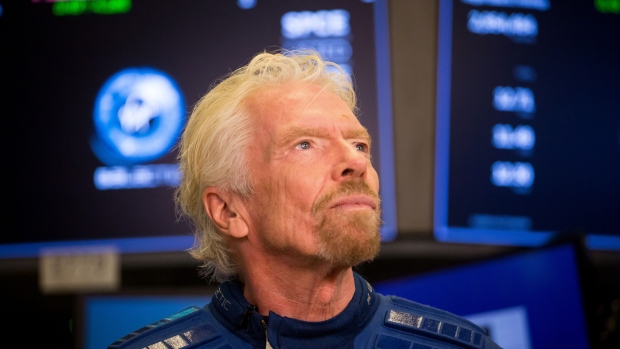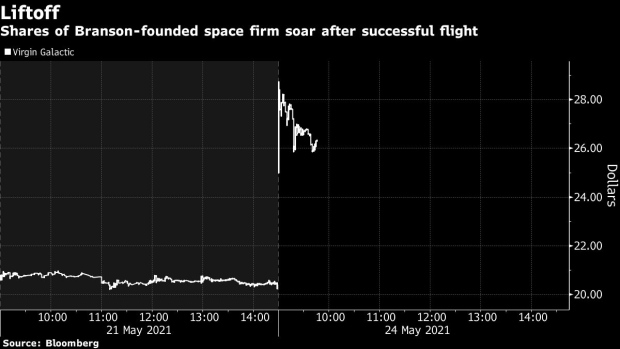May 24, 2021
Virgin Galactic shares jump following successful test flight
, Bloomberg News

Virgin Galactic Holdings Inc. climbed as much as 21 per cent after the company founded by billionaire Richard Branson conducted a test flight to space for the first time in more than two years.
The VSS Unity flight from New Mexico on Saturday marks a critical step on the path toward the start of commercial space tourism, helping to put the company back on its stated schedule for flying Branson to suborbital space as early as this summer and resuming ticket sales.
Space is too good not to share. Our proof is in the incredible views of Earth aboard #Unity21.
— Virgin Galactic (@virgingalactic) May 23, 2021
See more from the spaceflight: https://t.co/jXAuNRAbpw#VirginGalactic pic.twitter.com/F1pdPmvDx2
“We view this event as a major milestone,” Michael Ciarmoli, an analyst at Truist Securities, said in a note to clients. Importantly, the flight carried revenue-generating scientific research experiments for NASA, and collected key data for the Federal Aviation Administration, Ciarmoli added.
The stock was up 16 per cent at US$24.44, the highest in nearly six weeks, as of 9:34 a.m. in New York.

Virgin Galactic’s first rocket burn since February 2019 paves the way for the next test, which is expected to carry additional employees. No date has yet been set for that step.
After the 2019 flight, engineers detected damage to the spacecraft from pressure that had built up after ventilating holes were accidentally covered, according to “Test Gods,” a book published this month by New Yorker writer Nicholas Schmidle, who was given access to observe the company.
The program suffered another setback in December when Unity had to glide to the ground after a rocket motor failed to ignite when it was dropped from carrier aircraft VMS Eve.
A second flight attempt in February was scuttled by electrical interference to the spacecraft’s avionics, while Virgin this month said it was probing stress issues affecting Eve, before the craft was cleared to fly.






